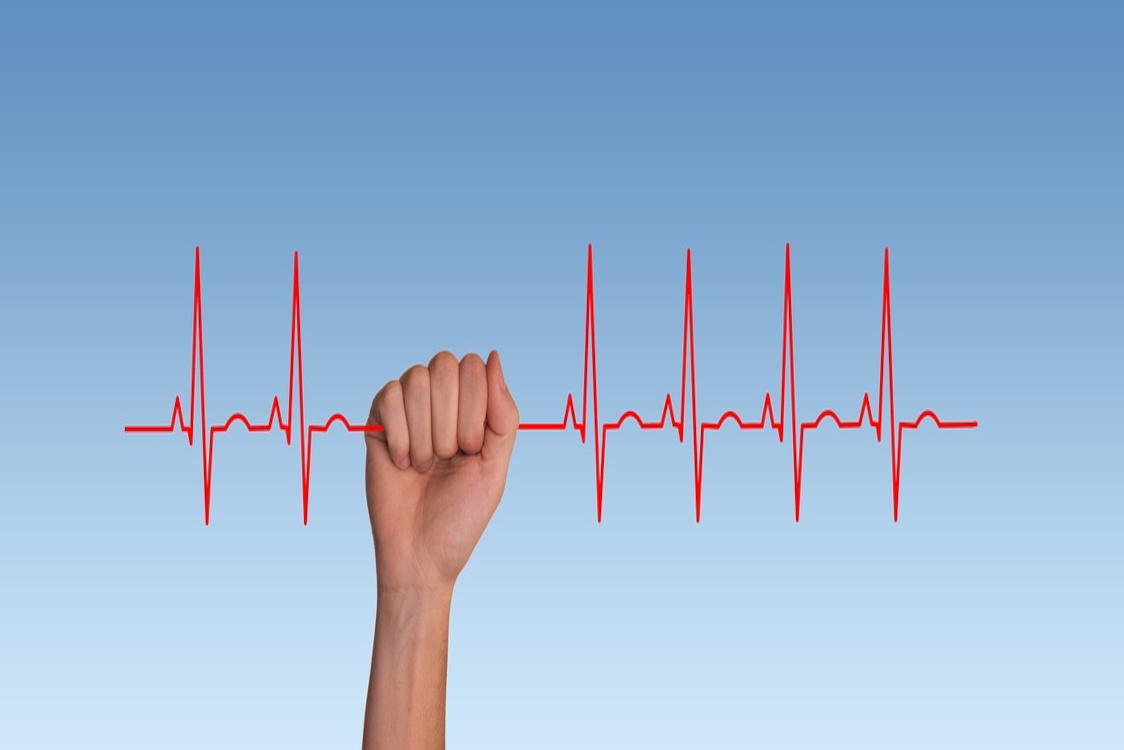An irregular pulse (a skipped pulse) occurs when the time between successive heartbeats is variable. It may be temporary (of more or less long duration) or permanent. There are many causes of an irregular pulse.
Irregular pulse symptoms
People with irregular pulse may not have symptoms, and the arrhythmia can be detected by palpating the pulse. However, most people usually consult with a doctor for various complaints, the most common symptoms being palpitations and dizziness. Some may present syncope or heart failure.
The degree to which people perceive palpitations or irregular pulse varies greatly. Some people perceive small variations in heart rhythm with unusual precision, while others remain apparently unmoved by sustained episodes of arrhythmia.
When evaluating a patient with an irregular pulse, some aspects of the pulse characteristics must be assessed, such as the way the episodes begin and end, their frequency and duration, the severity of the accompanying symptoms and the heart rate (fast or slow). These characteristics allow an initial approximation to the possible cause of the irregular pulse. In these cases, we can find different types of arrhythmia and their causes can also be diverse.
Causes of irregular pulse
When investigating possible causes of irregular pulse, a complete drug and dietary history should be taken. There are nasal decongestants that are adrenergic stimulants and cause episodes of tachycardia. Eye drops containing beta-blockers may cause bradycardia.
Dietary supplements, particularly those containing ephedrine, cause arrhythmias. There are several drugs that directly or indirectly affect the heart’s electricity and cause arrhythmias. Certain diseases are associated with arrhythmias, such as chronic obstructive pulmonary disease, hyperthyroidism, pericarditis, heart failure, or cardiomyopathies. It is important to know your family history, as inherited arrhythmias can be serious.
Sinus arrhythmia
The starting point of the normal electrical impulse of the heart is the sinus node, which is located in the upper part of the right atrium. From this node, the electricity spreads through the rest of the heart to produce cardiac contraction. The frequency of depolarization of the sinus node is determined by the action of certain hormones circulating in the blood, especially adrenaline, and two nerves: the sympathetic and the parasympathetic.
The sympathetic nerve makes the heart beat faster, while the parasympathetic nerve makes it beat slower. The balance between the action of both nerves largely determines the rhythm and heart rate. Under normal conditions, the heart rate varies cyclically with breathing, so that it increases with inhalation and decreases with exhalation.
Therefore, when taking the pulse of a normal person, we will notice that the frequency of the pulse varies between inspiration and expiration. In some people this variation is very evident and they show an irregular pulse. This is what is called “sinus, respiratory or physiological arrhythmia”, which is more frequent in children and has no pathological significance, so it is not given importance and does not require treatment.
Premature complexes
In most cases where an irregular pulse is found in a person, it is a case of premature complexes (atrial or ventricular). Premature complexes are electrical stimuli of the heart that are generated before the normal stimulus and give rise to premature heartbeats (they are also called “premature complexes”).
In most patients, premature complexes are asymptomatic and are discovered by chance. Some people with premature complexes report palpitations, others report “beats” of the heart, and in other cases, they feel like momentary “stops” of the heart.
Atrial fibrillation
The arrhythmia that most typically produces an irregular pulse is atrial fibrillation, in which the electricity of the muscle of the atria is totally disorganized and multiple electrical stimuli arise that reach the ventricles irregularly.
This arrhythmia often causes tachycardia, which is a rapid and irregular pulse. In some patients, however, especially those with heart block or receiving certain antiarrhythmic drugs, the heart rate may be normal or even slow. But the pulse is usually irregular. People with atrial fibrillation should be evaluated and treated by a cardiologist, as this arrhythmia can have serious consequences.
Atrioventricular block
Other rapid arrhythmias that may present with an irregular pulse are tachycardias originating in the atria that are accompanied by a variable degree of atrioventricular block. In these cases, the atrial stimuli are regular, but the block allows only some to pass to the ventricles, so that the ventricular rhythm is irregular. This is what occurs in atrial flutter with variable conduction and in atrial tachycardias with atrioventricular block.
Patients with normal atrial rhythm but atrioventricular block may also have an irregular pulse. In this case, the atrial beats are regular, but if the block cuts off only some stimuli, the pulse may be irregular. This occurs in second-degree atrioventricular block, in which some atrial stimuli pass to the ventricles, while others are blocked.
Management of the patient with irregular pulse
Anyone with an irregular pulse should be evaluated from a cardiological point of view. Typically, an electrocardiogram, echocardiogram and Holter monitor will be performed. Treatment will depend on the arrhythmia that is discovered.
Some of these arrhythmias, such as premature complexes, do not usually require treatment. Others, however, may require important measures, either with drugs or with invasive procedures (ablation). Tachyarrhythmias can be controlled with antiarrhythmic drugs, although some may require ablation. In atrial fibrillation, the indication of an antiarrhythmic and an anticoagulant should be considered. In the case of second-degree AV block, the implantation of a pacemaker may be necessary.



